Known to millions as EastEnders Ian Beale, Adam Woodyatt plays Albert Dolittle in the latest stage version of Lerner & Loewe's much-loved magical musical, My Fair Lady. He tells John Byrne all about his latest role.
Even by their standards, the Bord Gáis Energy Theatre is hitting some heights with its latest arrival, the prestigious and multi award-winning Lerner & Loewe musical My Fair Lady.
Described by London’s Evening Standard as a "Rolls Royce of a Revival" it stars EastEnders favourite Adam Woodyatt and legendary soprano Lesley Garrett, and promises to be an unforgettable night.
Based on the George Bernard Shaw play Pygmalion, My Fair Lady tells the story of cockney Eliza Doolittle, a young Covent Garden flower seller, and Henry Higgins, a linguistics professor who is determined to transform her into his idea of a "proper lady". But who is really being transformed?
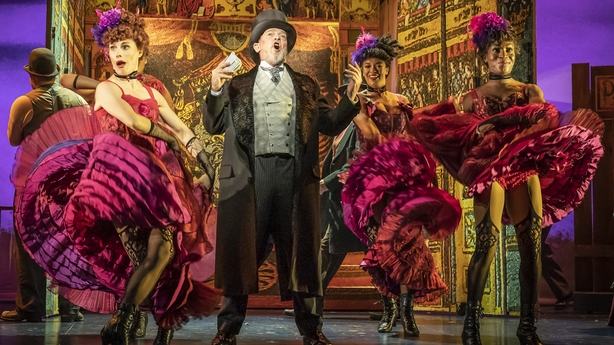
Best known for starring for many years as Ian Beale in EastEnders, Adam Woodyatt will play Eliza’s father Alfred P Doolittle, immortalised in the original stage version and subsequent film, by Stanley Holloway.
With a book and lyrics by Alan Jay Lerner and music by Frederick Loewe, My Fair Lady boasts a score including the classic songs I Could Have Danced All Night, Get Me to the Church on Time, Wouldn’t It Be Loverly, On the Street Where You Live, The Rain in Spain, and I’ve Grown Accustomed to Her Face.
And although it’s been a while, Adam Woodyatt is no stranger to the stage.
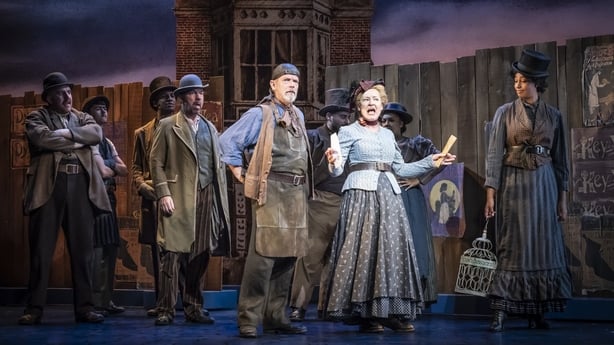
Before joining EastEnders as a 16-year-old, Adam had enjoyed a successful start to his career in the theatre with roles in Oliver! (Albery Theatre now Noel Coward), On the Razzle (National Theatre) before playing Shiner in the Baker Street Boys (BBC) and Dave Firkettle in Witches and the Grinnygog (TVS).
John Byrne: How did you get the gig in the first place? Was it their people talking top your people?
Adam Woodyatt: Yeah, their people spoke to my people! Nah, it was just an audition. Funnily enough it was the first audition I’d done in 38 years! He last audition was EastEnders. That was in July or August 1984.
It was quite daunting, suddenly having to do an audition again, because I hadn’t done one for so long. But I really enjoyed it! Some people might find doing an audition as cary, but I was like, 'No, this great fun’. I did what I’d prepared. Then I was asked to make him a bit darker? Can you do this? Can you do that?
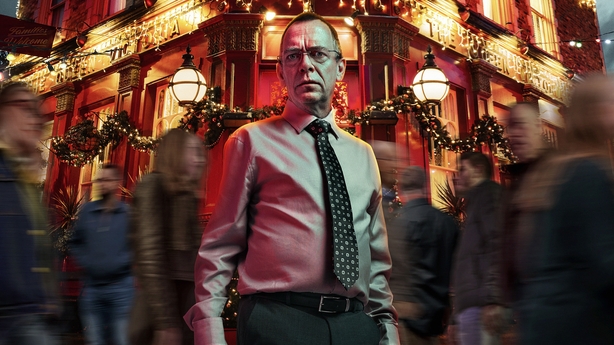
‘Okay," I said, ‘but I may have to borrow your script because I’ve marked mine up with how I wanted to do it, which is completely to how you’ve just said, so can I borrow yours?
So was this move very intentional? You wouldn’t be auditioning for the part if it wasn’t one you wanted?
The phone came in sort of ‘Do you fancy having a go at Alfred Dolittle?’ I said: ‘Yeah, of course I do.’ If something like that comes around, you’re not going to say no to it.
I dialled up Google, just to see how many people have actually played Alfred Dolittle . . . Stanley Holloway obviously did it in 1958, when it came out. And of course he did the film. I think then Peter Bayliss did the tour. Dennis Waterman did it. But that’s about it. There’s not a lot of actors who’ve played him.
It wasn’t many people, and to be given that opportunity, it was like, ‘Of course I’ll do it.’
Obviously people associate the part with Stanley Holloway. Are you going to bring Adam Woodyatt to the role?
No, I don’t want to bring me to it - it’s my interpretation of Dolittle, and how Shaw originally wrote him in Pygmalion. Bartlett Sher, the director, is very much: yes, it’s Lerner and Loewe’s text and lyrics, and music for the musical, but the characterisations . . . A Lot of the stuff Bartlett’s been getting us to do and think about has been from Shaw’s Pygmalion.
Albert’s a very OTT character.
Yes. There’s a lot of that, but it’s a darker character. He is from the undeserving poor, which I didn’t realise actually was a class. There were two ways of describing the poor. They were either deserving or undeserving. I just thought it as something he was saying. Then, as we’ve dug into it, these classes actually existed.
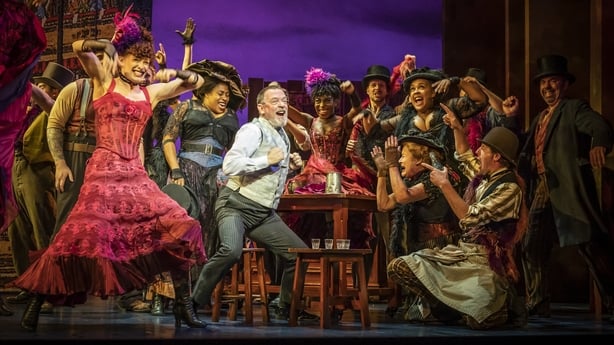
So this character of Dolittle, he’s almost like a revolutionary. There are elements of Trotskyism, socialism, all that in him. But he’s also bone idle, doesn’t want to work and wants to party all the time.
For me, this story was always about class. Obviously there’s Higgins' added misogyny, but it’s really about class. Would you agree with that?
I wouldn’t have done before going into rehearsals and digging into it so deeply, we really have. Yes, now I can see it is totally a class thing. Prior to that I would’ve said it was men versus women.
Eliza’s speeches at the end, where she says ‘You’re no better than my father’ and ‘you’re wrong and I’m right’ - except she says it a lot better than I’ve just said it there - yes, there is the whole male-female dominance thing, but it is purely about just because I’m from this background, it doesn’t make me a lesser person.
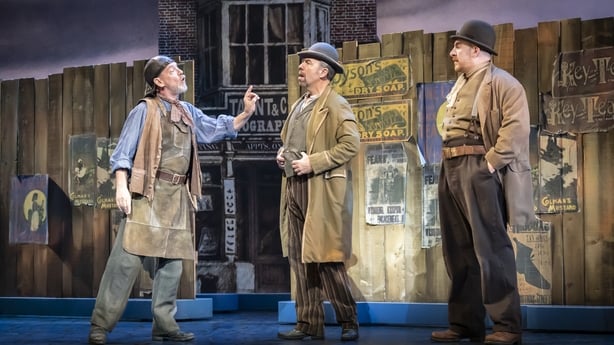
It’s also a great bloomin’ musical!
We can go into the relevance of the text all day long . . . Is it an entertaining show? Yes it bloody is! That’s the thing! It’s lavish, it’s sumptuous. The sets, the wigs, the hats. Yeah, it’s a massive piece and the reason people probably aren’t as familiar with the stage version as they are with the film - and they are very, very similar - is because it’s so big.
And because of the size of the production, there are only so many theatres it can go to. And there’s only so often it goes out. The last time it was on tour was in 2005. It’s a massive beast. Higgins’ house, for example, is this huge revolving set. It’s his whole house - and it spins!
You’ve got that scale of things, and then you do Ascot, and there’s no set. There’s just a canopy. It’s this visual of all these beautifully dressed ladies and gentlemen with the big hats and the top hats, it just looks expensive.
Are you familiar with Dublin or the Bord Gáis Energy Theatre?
I was here actually, to watch Chicago, with Sam Bailey. And she’s back here at Christmas doing Beauty and the Beast. She’s playing Mrs Potts in that.
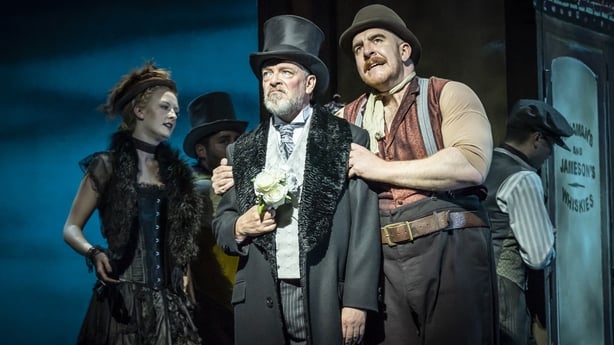
So, yes, I’ve Sam over here. Rory Cowan’s an old mate. And I bumped into Fiona O’Carroll because she’s been out. She’s on Ultimate Hell Week. I’d watch that! From what she was telling me, it’s pretty tough.
Finally, what’s the story with Ian Beale? Is he gone from EastEnders for good or will we see him back on Albert Square some time in the near or even distant future?
He got on the Tube, he got on the Circle Line, and he can;’t work out where to get off. He’s just going round and around.
My Fair Lady runs at the Bord Gáis Energy Theatre from Oct 6-30 and tickets are available from Ticketmaster.

